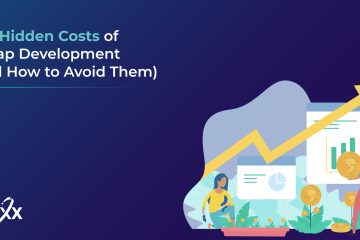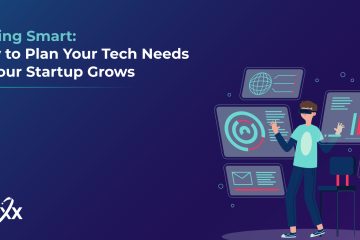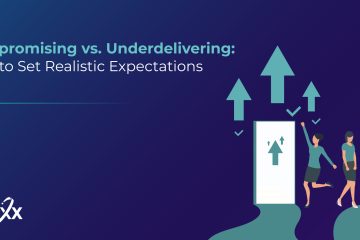Tips for Knowing When to Use Python
Knowing when to use Python is something that will help make your programming needs easier to meet. Check out our tips for using the language here.
In its more than 20 years of existence, Python has become one of the most commonly used programming languages. IEEE ranked it as the number three language in 2016 and number one in 2017. This language gets support from a super passionate international coding community.
It’s impossible to avoid hearing about it in the coding world, but how do you know when to use Python?
Knowing when this language will be the best option for your needs will make your coding much smoother and easier in the future. The applications for Python are never-ending – you just have to know when to choose it!
When to Use Python
Whether you’re a beginner or someone with 15 years of experience in coding, you can find a myriad ways to use Python. Getting started is the hardest part. Here are some tips to help you out:
1. Building Desktop Apps
If your goal is to create a desktop app, Python is a great option. Don’t worry about scale — companies as large as Dropbox and Reddit use the language to build their platform and services. No matter what you want your reach to be, Python will work for you.
The Tkinter module is built into Python to build desktop apps, while the PyGame and Ren’Py modules make creating desktop games a breeze.
Working with Python means that you won’t have to worry about it not functioning well on a certain platform. No matter what a potential customer is using to run your app, it will work the way it’s supposed to.
2. Creating Mobile Apps
People are spending more time than ever on their phones. If you’re looking to meet your audience where they are with a mobile app, Python should be your go-to.
It’s powerful enough that you can create apps completely from scratch. Plus, there’s plenty of open-source code available for you to incorporate into your project if you want to.
Need more convincing? The apps for Spotify, YouTube, and Instagram were all created using Python!
3. Developing Graphics
Since we just covered some major companies who trust the language for their apps, you’ve probably guessed another instance of when to use Python — the need to develop graphics.
While you can always work in a traditional text editor, Python has tools like Wing IDE that are great for creating graphics. Additionally, the graphics library makes it easy for beginners to create custom images with the code.
Graphic design companies have even used the language to code their own applications. If you’ve ever used PaintShopPro, you’ve used an app coded with Python.
Here’s an interesting snippet. The likes of world – renowned special effects companies such as Industrial Light and Magic uses Python to build effects-heavy movies.
4. Data Visualization
No matter what industry you work in, there will probably be a time where you have a lot of data that you need to crunch.
Any good assessment usually requires that you analyze and view your data in a number of different ways to get the full picture of how you’re operating.
If you want to both crunch numbers and display them in a way that’s easy to understand, Python can help you do that. It can even create charts that are good enough to be published in a journal.
Even if you’re just analyzing the data, Python is a powerful language choice. When economists trust it to do their scientific math, you know you’ve found a reliable option.
5. Machine Learning
We haven’t even gotten close to covering all of the different uses of Python. It’s such a versatile programming language. One of the most notable ones, though, is machine learning.
Let’s say you don’t want to spend your time writing endless lines of code. You want to create a computer program that learns without having to be programmed for a specific task. A case in point is Netflix, that has an algorithm to dish out personalized content that you may like, based on previous watching preferences. Python is the perfect language for writing this kind of code, so developers use it often. Tools like Theano and scikit-learn are especially helpful!
6. If You Like Concise Code
It can be difficult to go back to a highly structured programming language if you’ve been working in Python for ages.
Included in the Python philosophy is “beautiful is better than ugly,” “simple is better than complex,” and “readability counts,” so naturally those show up in the way the language is structured.
If you prefer your code to be both concise and functional, Python will probably become your language of choice.
7. If You Need an Easy-to-Learn Language
Let’s say you’ve determined that Python is the best option for your latest project, but you or your developers are more experienced in Ruby or Java. Taking the time to master a new programming language could be a pain.
Luckily, Python is easy to learn even for people with zero coding experience. Unlike other coding languages, it’s simple to read whether you’ve been coding for years or days. It just makes sense.
One of the best things about it is that the language will grow with you. People love Python for its scalability. It doesn’t matter if you want to use Python to execute a simple command or to run a website with millions of users — the code will do the job.
When Should I Find Another Option?
As versatile as the Python language is, it can’t be used for everything. That’s why we have a variety of languages to choose from.
If you want to run an app in real-time, build something bound to a CPU, or need a smaller memory footprint, Python might not work. However, you can always start in Python if it’s easier for you to read before ‘translating’ to a different language.
See What You Can Do with Python
Now that you’ve learned when to use Python, see what else you can do with this powerful programming language. We can work with you to design a mobile or desktop app, develop a new product, test your current applications, and more.
Between us, our employees have many years of experience. We’ll put that experience to good use for your business.
Schedule your free 30-minute consultation today!


